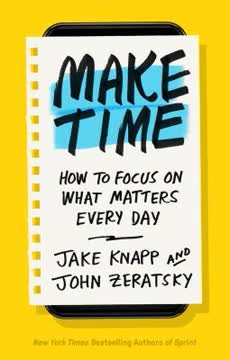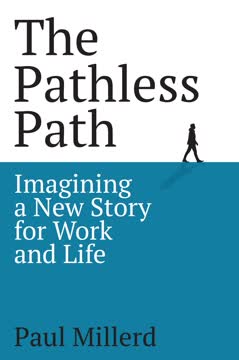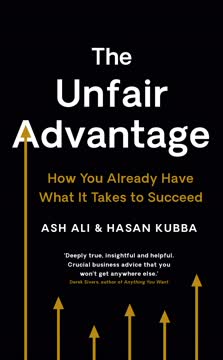Key Takeaways
1. Life isn't fair, but everyone has unfair advantages
An Unfair Advantage is a condition, asset or circumstance that puts you in a favourable business position.
Recognize your advantages. Everyone has some form of unfair advantage, whether it's money, intelligence, location, education, or status. These advantages can't be easily copied or bought and are unique to each individual. For startup founders, understanding and leveraging these advantages is crucial for success.
Overcome disadvantages. Even apparent disadvantages can be turned into advantages with the right mindset. For example, Oprah Winfrey's difficult childhood experiences helped her develop powerful emotional intelligence and empathy, which became key to her success as a talk show host.
Examples of unfair advantages:
- Inherited wealth or connections
- Natural talent or intelligence
- Growing up in a tech hub like Silicon Valley
- Access to elite education
- Being part of a certain demographic or subculture
2. Success is a combination of hard work and luck
'Luck enters into everybody's life.' Warren Buffett
Acknowledge luck's role. While hard work is essential, it's important to recognize that luck plays a significant part in success. This includes the circumstances of your birth, timing, and serendipitous opportunities. Understanding this can help maintain humility and compassion.
Increase your luck surface area. While you can't control luck, you can increase your chances of getting lucky by taking more action, meeting more people, and putting yourself in situations where opportunities are more likely to arise.
Ways to increase your luck:
- Attend industry events and networking sessions
- Share your ideas and work publicly
- Be open to new experiences and connections
- Take calculated risks and pursue multiple opportunities
3. Identify your MILES: Money, Intelligence, Location, Education, Status
Your Unfair Advantage is your personal economic moat.
Assess your strengths. Use the MILES framework to identify your unique unfair advantages. Money provides capital and runway, Intelligence includes creativity and problem-solving skills, Location affects access to resources and networks, Education encompasses formal learning and expertise, and Status includes your personal brand and connections.
Leverage your advantages. Once identified, focus on maximizing these advantages in your startup journey. If you're weak in one area, consider partnering with someone who complements your strengths.
Examples of leveraging MILES:
- Money: Use personal savings to bootstrap your startup
- Intelligence: Apply creative problem-solving to find unique solutions
- Location: Utilize local resources and networks in a startup hub
- Education: Apply specialized knowledge to solve industry problems
- Status: Leverage personal connections for funding or partnerships
4. Mindset is the foundation for success
Reality-growth mindset is the balance between self-awareness and self-belief.
Cultivate a reality-growth mindset. This involves balancing realism about current circumstances with belief in your ability to grow and improve. It's about setting achievable goals while still pushing yourself to reach your full potential.
Develop key mindset characteristics. Focus on cultivating vision, resourcefulness, constant learning, and grit. These traits will help you navigate the challenges of entrepreneurship and persist in the face of setbacks.
Key mindset characteristics:
- Vision: Ability to see and work towards a future goal
- Resourcefulness: Finding creative solutions with limited resources
- Constant learning: Adapting to new information and skills
- Grit: Perseverance in the face of obstacles and failures
5. Choose between lifestyle and hyper-growth startups
Startup = Growth. A startup is a company designed to grow fast.
Understand the differences. Lifestyle startups aim for sustainable profitability and work-life balance, while hyper-growth startups focus on rapid expansion, often requiring significant investment and intense work schedules. Choose based on your goals, resources, and unfair advantages.
Consider your resources and goals. Lifestyle startups often bootstrap and serve niche markets, while hyper-growth startups usually need external funding and target large markets. Be realistic about what you can achieve with your current resources and what kind of life you want to lead.
Comparison of startup types:
- Lifestyle: Lower risk, slower growth, more control, work-life balance
- Hyper-growth: Higher risk, rapid growth, external pressures, potential for massive success
6. Find the right co-founders to complement your skills
It is exponentially more difficult to succeed in your startup as a solo founder.
Seek complementary skills. Look for co-founders who have strengths in areas where you're weak. A typical founding team might include a visionary creator, a skilled communicator, and a technical expert.
Build trust and alignment. Choose co-founders you can trust and who share your vision and values. Conflicts between founders are a leading cause of startup failure, so take time to build strong relationships and clear communication channels.
Tips for finding co-founders:
- Attend industry events and meetups
- Join online communities for entrepreneurs
- Leverage your existing network for introductions
- Consider working on smaller projects together first
7. Start with a minimum viable product (MVP) and iterate
If you're not embarrassed by the first version of your product, you've launched too late.
Focus on core functionality. Build an MVP that solves the main problem for your target users, even if it's not perfect. This allows you to get real feedback quickly and avoid wasting time on unnecessary features.
Iterate based on feedback. Use customer feedback to improve your product continuously. Be prepared to make significant changes (pivots) if necessary. Many successful startups, like Instagram and WhatsApp, evolved significantly from their initial concepts.
Steps to build and iterate an MVP:
- Identify the core problem you're solving
- Build the simplest version that addresses this problem
- Launch and gather user feedback
- Analyze data and user behavior
- Make improvements based on insights
- Repeat steps 3-5 until you achieve product-market fit
Last updated:
FAQ
What's "The Unfair Advantage" about?
- Core Concept: "The Unfair Advantage" by Ash Ali and Hasan Kubba explores how success in startups is not solely about hard work and merit but also about leveraging unique personal advantages.
- Framework Introduction: The book introduces the MILES Framework, which helps identify and leverage personal unfair advantages in Money, Intelligence, Location, Education, and Status.
- Real-Life Examples: It uses real-life examples and case studies to illustrate how successful entrepreneurs have used their unfair advantages to succeed.
- Empowerment Focus: The authors aim to empower readers by showing that everyone has unique advantages that can be leveraged for success.
Why should I read "The Unfair Advantage"?
- Unique Perspective: The book offers a fresh perspective on success, challenging the myth of meritocracy and emphasizing the role of unique personal advantages.
- Practical Framework: It provides a practical framework (MILES) to help readers identify and leverage their own unfair advantages.
- Inspiring Stories: Through inspiring stories and examples, the book motivates readers to recognize and utilize their strengths.
- Actionable Advice: It offers actionable advice for aspiring entrepreneurs, making it a valuable resource for anyone looking to start or grow a business.
What are the key takeaways of "The Unfair Advantage"?
- Meritocracy Myth: Success is not just about hard work; it's also about leveraging unique personal advantages.
- MILES Framework: The framework helps identify unfair advantages in Money, Intelligence, Location, Education, and Status.
- Mindset Matters: A growth mindset, combined with self-awareness, is crucial for leveraging unfair advantages.
- Success Stories: Real-life examples demonstrate how successful entrepreneurs have used their unfair advantages.
How does the MILES Framework work in "The Unfair Advantage"?
- Five Pillars: The MILES Framework consists of Money, Intelligence, Location, Education, and Status, each representing a potential unfair advantage.
- Self-Audit Tool: It serves as a tool for self-audit, helping individuals identify their unique strengths and advantages.
- Leverage for Success: By understanding and leveraging these advantages, individuals can increase their chances of success in business.
- Complementary Strengths: The framework also emphasizes partnering with others who have complementary strengths.
What is the "Reality-Growth Mindset" in "The Unfair Advantage"?
- Balanced Perspective: The Reality-Growth Mindset balances the belief in hard work with the acceptance of life's inherent unfairness.
- Self-Awareness and Belief: It combines self-awareness with self-belief, encouraging individuals to recognize their limitations while striving for growth.
- Practical Application: This mindset helps individuals set realistic goals and take actionable steps toward success.
- Avoiding Extremes: It avoids the extremes of victim mentality and overconfidence, promoting a balanced approach to personal and professional growth.
What are some of the best quotes from "The Unfair Advantage" and what do they mean?
- "Life isn’t fair." This quote emphasizes the book's core message that success is not solely based on merit but also on leveraging unique advantages.
- "Success is both hard work and luck." It highlights the dual nature of success, combining effort with the right opportunities and timing.
- "Your Unfair Advantage is your leverage." This quote underscores the importance of identifying and using personal strengths to gain a competitive edge.
- "Mind over matter, but matter still matters." It reflects the balance between mindset and tangible advantages in achieving success.
How do Ash Ali and Hasan Kubba define "Unfair Advantage"?
- Unique Edge: An Unfair Advantage is a unique condition, asset, or circumstance that gives an individual a competitive edge.
- Not Easily Replicable: These advantages are not easily copied or bought, making them unique to the individual.
- Beyond Skills: It goes beyond skills and includes factors like background, connections, and personal circumstances.
- Foundation for Success: Recognizing and leveraging these advantages can be a foundation for success in business and life.
How can I identify my own Unfair Advantages using the MILES Framework?
- Self-Reflection: Start by reflecting on your personal circumstances, strengths, and experiences in each of the MILES categories.
- Ask Questions: Consider questions like "What do I have that others don't?" and "What unique experiences have shaped me?"
- Seek Feedback: Get feedback from trusted friends or mentors to gain an outside perspective on your strengths.
- Continuous Audit: Regularly revisit and update your self-audit as your circumstances and experiences evolve.
What role does "Mindset" play in "The Unfair Advantage"?
- Foundation of MILES: Mindset is the foundation of the MILES Framework, influencing how individuals perceive and leverage their advantages.
- Growth vs. Fixed: The book contrasts a growth mindset with a fixed mindset, advocating for a balanced Reality-Growth Mindset.
- Empowerment: A positive mindset empowers individuals to take action and make the most of their circumstances.
- Adaptability: It encourages adaptability and resilience in the face of challenges and setbacks.
How do the authors of "The Unfair Advantage" address the myth of meritocracy?
- Challenging the Narrative: The authors challenge the narrative that success is solely based on hard work and merit.
- Highlighting Inequality: They highlight the inherent inequalities and unlevel playing fields in society and business.
- Role of Luck: The book emphasizes the role of luck and timing in achieving success.
- Leveraging Advantages: It encourages readers to focus on leveraging their unique advantages rather than solely relying on hard work.
What are some real-life examples of Unfair Advantages from "The Unfair Advantage"?
- Evan Spiegel: The book discusses how Evan Spiegel's privileged background and connections contributed to Snapchat's success.
- Oprah Winfrey: Oprah's natural talent and early experiences are highlighted as key unfair advantages in her rise to success.
- Tristan Walker: His insight into the needs of African American men led to the success of his startup, Walker & Co.
- Sara Blakely: Her personal experience and insight into women's needs helped her create the billion-dollar company Spanx.
How can "The Unfair Advantage" help aspiring entrepreneurs?
- Identifying Strengths: It helps entrepreneurs identify and leverage their unique strengths and advantages.
- Practical Framework: The MILES Framework provides a practical tool for assessing and utilizing unfair advantages.
- Inspiration and Motivation: Real-life success stories inspire and motivate entrepreneurs to pursue their goals.
- Actionable Steps: The book offers actionable steps and advice for starting and growing a successful business.
Review Summary
The Unfair Advantage receives mostly positive reviews, with readers praising its realistic approach to success and entrepreneurship. Many appreciate the MILES framework for identifying personal advantages and the book's emphasis on leveraging unique strengths. Reviewers find the content practical, insightful, and applicable to both business and life. Some criticize repetition and lack of depth in certain areas. Overall, readers value the book's fresh perspective on achieving success by recognizing and utilizing individual unfair advantages.
Similar Books










Download PDF
Download EPUB
.epub digital book format is ideal for reading ebooks on phones, tablets, and e-readers.




